The “7th Inquiry-Type Learning Study Forum” was held to show the results student research at Tamagawa Gakuen.
A poster/information session was held on the theme “Research development with use of statistics”. About 150 education officials including teachers from other schools gathered from all over the country.
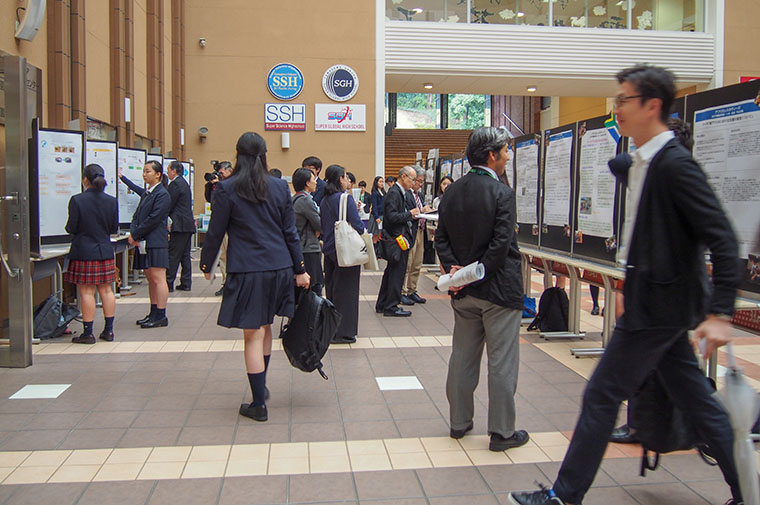
In the morning, the students introduced various initiatives they had worked on during Tamagawa Gakuen’s “Individual Research” class.
Students who participated in “African Studies”, “European Studies” and “Model United Nations” made presentations on what they had learned.
As the students conveyed the findings of the various types of research they did, the watching visitors were given a chance to rethink what is “ordinary” about different topics.
Having had experience visiting various countries and thinking about world issues in the Model United Nations, the students were able to provide informed views on the topics.
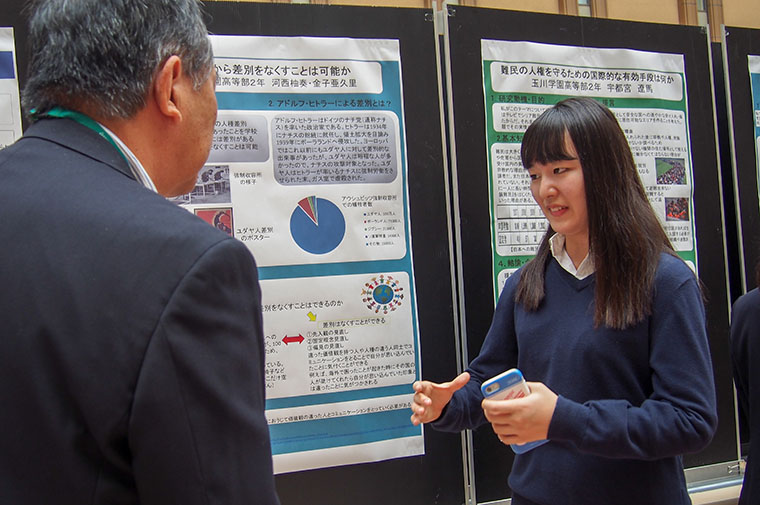
“To truly know about minorities and the issues facing them, I think that we need to actually get involved with them. I found people from the LGBT community quite open and easy to talk to, for example.”
This was a comment from a student whose presentation was entitled: “Can we eliminate discrimination from the world?” She introduced the things she learned from her relationships with people from the LGBT community.
“I think that there aren’t many people who have had the same experiences as you have had at your age. You have real feeling in your words”
Audiences were seriously impressed with the students’ enthusiasm to convey the truth as she saw it.
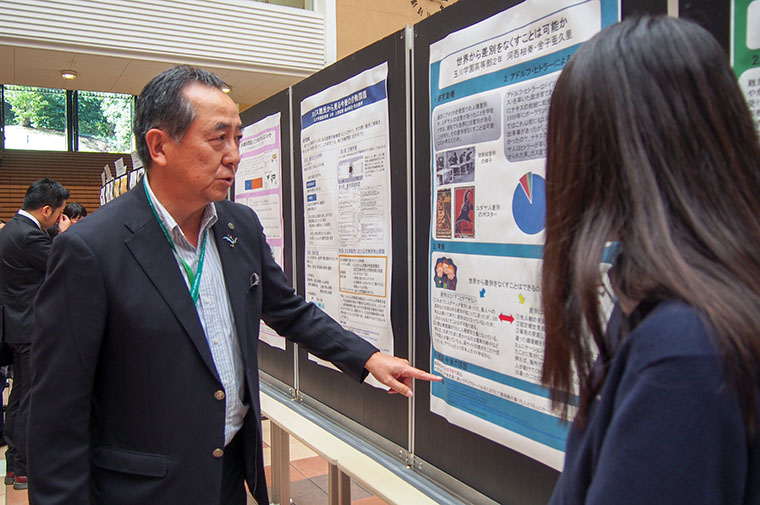
“Since dealing with poverty is a difficult thing, I would like to break it down into smaller aspects and explore micro-solutions to tackle the bigger problem.”
The students were able to back up their ideas with data and explain further research questions that could impact on their future studies.
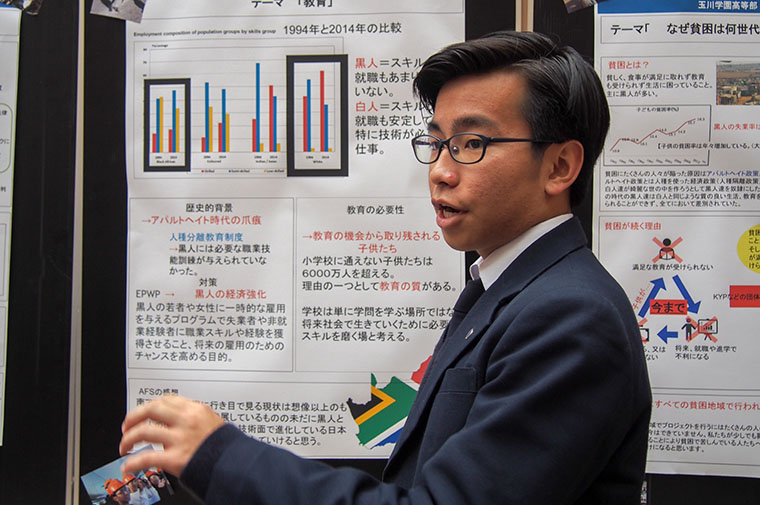
Despite the venue being full of many students and other visitors, the students presented their ideas clearly and confidently.
The passion of “trying to face the international community as a single citizen” resonated in the hearts of many visitors.

In the afternoon, about 100 teachers gathered in the hall of the junior high school building.
Keynote lectures and practical reports on statistical education to nurture the statistical driven thinking skills necessary for fact based research were held.
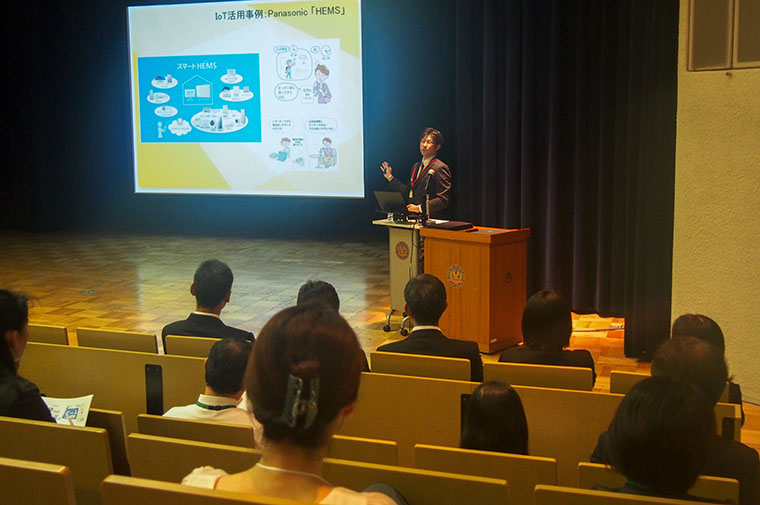
The keynote speech was given by Mr. Kazuhiro Aoyama, who served as Associate Professor of Mathematics Education at the Aichi University of Education. The theme of the speech was about social backgrounds and their impact on statistical education and examples of classes that acquire statistical thinking skills.
He explained it by showing examples of government recommendations and corporate activities using statistics.
There were impressions given by teachers who thought things like; “I thought that we have to change today’s school education.”
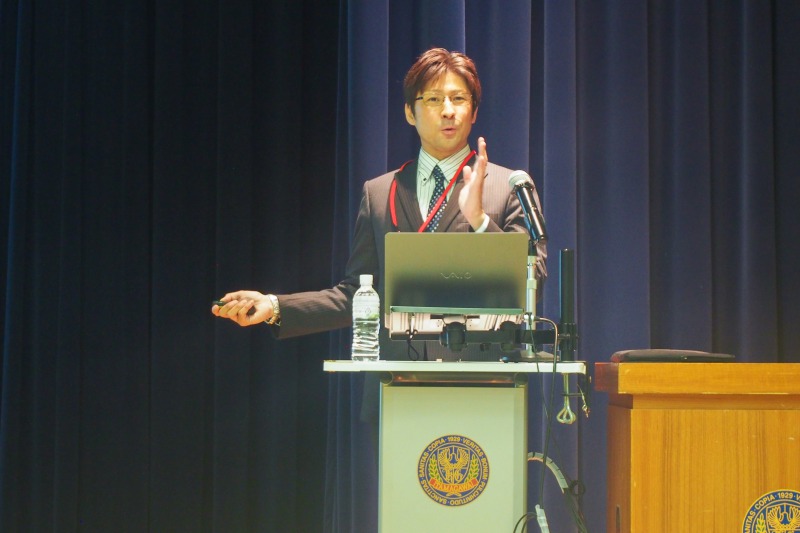
Subsequently, practical reports by three teachers were given.
The first speaker was Kenji Kawai, a teacher at Okazaki Junior High School affiliated to the Aichi University of Education.
They experienced rain at many school events and a student jokingly asked “Is there rain bringer in this grade?” Mr. Kawai told the students how to statistically determine if there was a ‘rain bringer’ among them. The humor behind the statistically driven research helped the students enjoy what otherwise may be a dry bit of research.
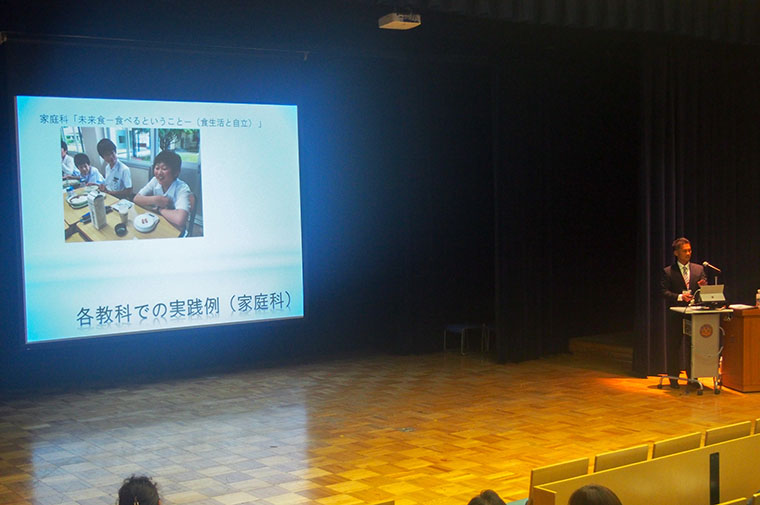
Mr. Suzuki who is an 8th grade mathematics teacher at Tamagawa Gakuen (second grade of middle school) reported on math classes designed to nurture statistical thinking ability.
Statistical analysis was also introduced by the students who took the class.
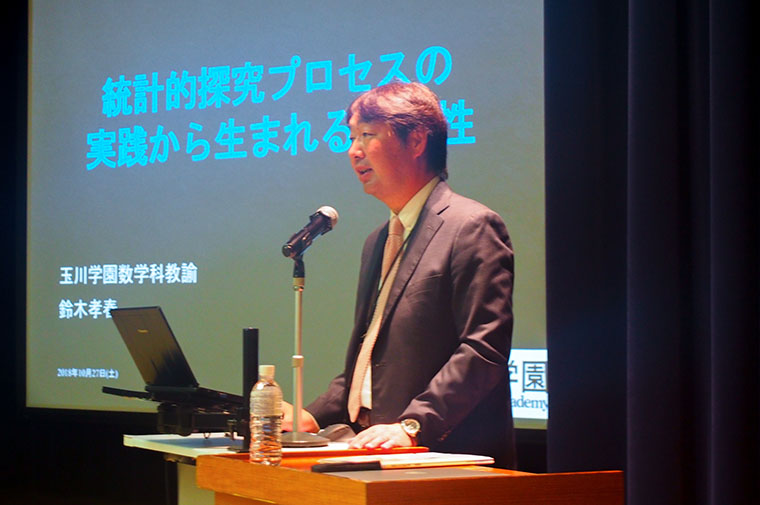
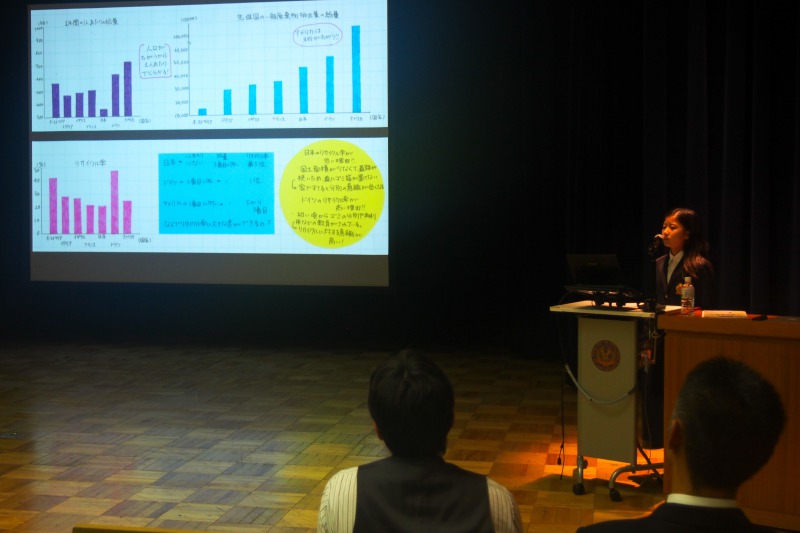
The teacher who made the last report was Professor Goto who teaches “Research Methods” classes at Tamagawa gakuen. “Research methods” which fosters information management skills is a part of the exploratory learning process at Tamagawa Gakuen.
His presentation was about how students must research and verify their information with citations and these skills are taught during the class.
At the Q & A session and the information exchange meeting after the lectures / reports, a lot of questions were raised and enthusiastic exchanges of opinions was held.
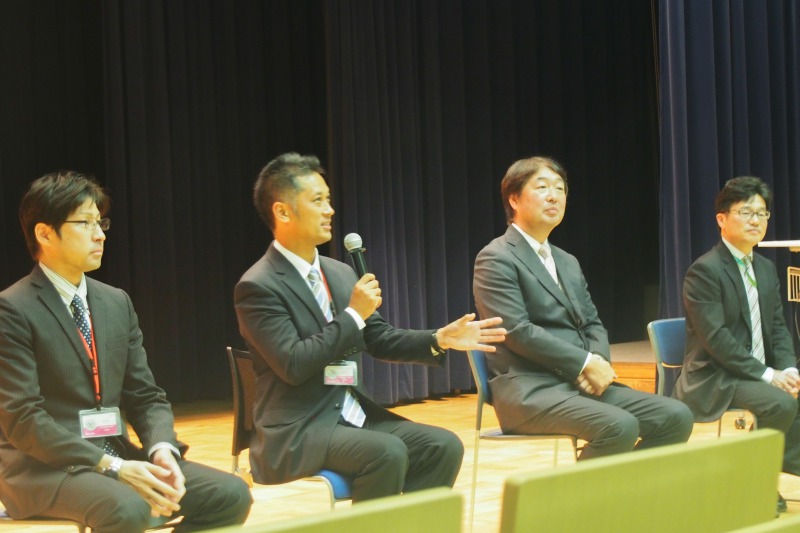
The students conducted their research on their own chosen topics which embodies the idea of “autonomous self-study”. Teachers supported the students in this endeavor.
They conveyed the importance of “always pursuing exploration aiming for better education”.
【講師プロフィール】
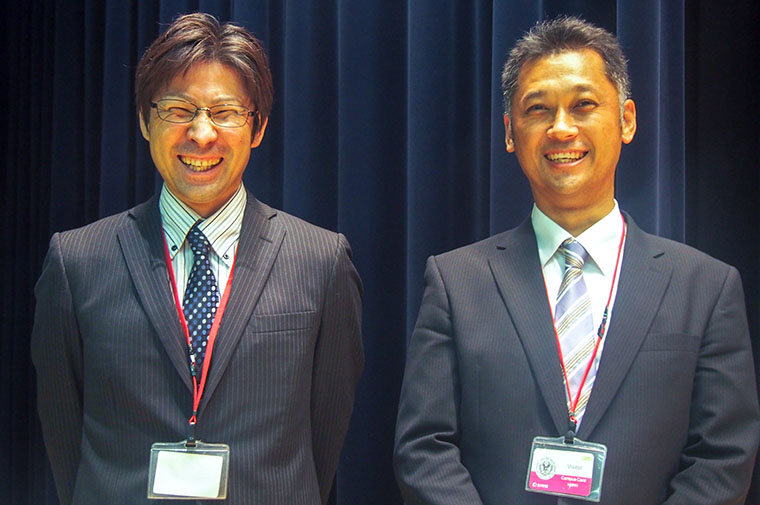
(写真左より)
Kazuhiro Aoyama
In 2000, he graduated from Aichi University of Education Graduate School of Education studying mathematics. In 2005, he graduated from the School of Education at Tsukuba University. After working as an assistant professor at Aichi University of Education, he became Associate Professor in 2011. He later took charge of the Japan Mathematical Education Association at the Japan Science Education Association.
Kenji Kawai
He graduated from Aichi University of Education School of Education. Afterwards, he taught at various elementary and junior high schools. Since 2016 he has been a mathematics teacher at Okazaki Junior High School attached to Aichi University of Education.



